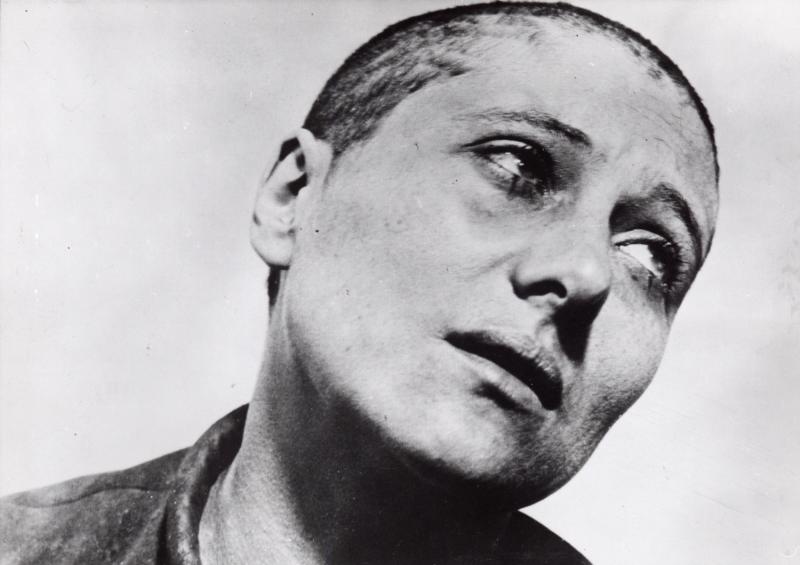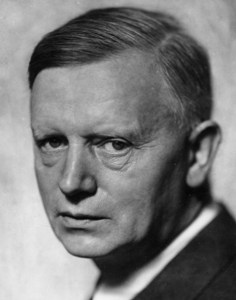Carl Theodor Dreyer season, British Film Institute | reviews, news & interviews
Carl Theodor Dreyer season, British Film Institute
Carl Theodor Dreyer season, British Film Institute
Passion and faith are the themes of the Danish director's retrospective

The chance to see all 14 of the great Danish director Carl Theodor Dreyer's full-length films and a selection of his shorts during the BFI’s season is unique. Conviction and mysticism are central to his films. Whether it’s the suffering principle of The Passion of Joan of Arc (1927) or the 17th-century hunts of Day of Wrath (made in Nazi-occupied Denmark in 1943), his characters are driven by passion and certainty. Most often they are women.
Dreyer's naturalistic approach was characteristically spartan - in each of his films he made sure to use very few scenes. The precision brings its own power, whether in the subtle comedy of Master of the House (1925) or, nearly 40 years later, Gertrud (1964) a romance like no other. It's intensely shocking to see Renée Marie Falconetti’s Joan face her inevitable fate with such calm. Dreyer built his films around the tension between the believer – or the person who cannot be distracted from their convictions – and those with opposing viewpoints. For 1955’s Ordet (The Word), that tension is in the marriage of Mikkel and Inger, whose faith is tempered by practicality. Dreyer died (in 1968) before realising his ambition of making a film about Christ.
 Dreyer was born in 1889. His mother was the maid of a Danish farmer working in Sweden. After time spent in an orphanage, he was adopted by Carl Theodor Dreyer (senior). His new mother and father were emotionally cool. On leaving school he became a journalist and arrived at cinema after writing title cards for silent films. Both his disconnected childhood and background in journalism informed his films. Equally profound was his encounter with the work of Jean Cocteau in France in the 1920s. Dreyer would combine realism and – sometimes surreal and disturbing – art .
Dreyer was born in 1889. His mother was the maid of a Danish farmer working in Sweden. After time spent in an orphanage, he was adopted by Carl Theodor Dreyer (senior). His new mother and father were emotionally cool. On leaving school he became a journalist and arrived at cinema after writing title cards for silent films. Both his disconnected childhood and background in journalism informed his films. Equally profound was his encounter with the work of Jean Cocteau in France in the 1920s. Dreyer would combine realism and – sometimes surreal and disturbing – art .
Exiled in Sweden in 1945, he never stopped working. Although he had already made what would later be recognised as landmark films – Bride of Glomdal (1926), Vampyr (1932) as well as The Passion of Joan of Arc – it was only in 1955 with Ordet that he achieved popular recognition.
His are striking, unusual films. Rather than being suffused with melancholy, they celebrate choices made, choices stuck to. Above all the BFI season celebrates Dreyer's understanding of faith.
Watch an extract from Carl Theodor Dreyer's Vampyr (1932)
Buy
Share this article
The future of Arts Journalism
You can stop theartsdesk.com closing!
We urgently need financing to survive. Our fundraising drive has thus far raised £49,000 but we need to reach £100,000 or we will be forced to close. Please contribute here: https://gofund.me/c3f6033d
And if you can forward this information to anyone who might assist, we’d be grateful.

Subscribe to theartsdesk.com
Thank you for continuing to read our work on theartsdesk.com. For unlimited access to every article in its entirety, including our archive of more than 15,000 pieces, we're asking for £5 per month or £40 per year. We feel it's a very good deal, and hope you do too.
To take a subscription now simply click here.
And if you're looking for that extra gift for a friend or family member, why not treat them to a theartsdesk.com gift subscription?
more Film
 One Battle After Another review - Paul Thomas Anderson satirises America's culture wars
Leonardo DiCaprio, Teyana Taylor, and Sean Penn star in a rollercoasting political thriller
One Battle After Another review - Paul Thomas Anderson satirises America's culture wars
Leonardo DiCaprio, Teyana Taylor, and Sean Penn star in a rollercoasting political thriller
 Steve review - educator in crisis
Cillian Murphy excels as a troubled headmaster working with delinquent boys
Steve review - educator in crisis
Cillian Murphy excels as a troubled headmaster working with delinquent boys
 Can I get a Witness? review - time to die before you get old
Ann Marie Fleming directs Sandra Oh in dystopian fantasy that fails to ignite
Can I get a Witness? review - time to die before you get old
Ann Marie Fleming directs Sandra Oh in dystopian fantasy that fails to ignite
 Happyend review - the kids are never alright
In this futuristic blackboard jungle everything is a bit too manicured
Happyend review - the kids are never alright
In this futuristic blackboard jungle everything is a bit too manicured
 Robert Redford (1936-2025)
The star was more admired within the screen trade than by the critics
Robert Redford (1936-2025)
The star was more admired within the screen trade than by the critics
 Blu-ray: The Sons of Great Bear
DEFA's first 'Red Western': a revisionist take on colonial expansion
Blu-ray: The Sons of Great Bear
DEFA's first 'Red Western': a revisionist take on colonial expansion
 Spinal Tap II: The End Continues review - comedy rock band fails to revive past glories
Belated satirical sequel runs out of gas
Spinal Tap II: The End Continues review - comedy rock band fails to revive past glories
Belated satirical sequel runs out of gas
 Downton Abbey: The Grand Finale review - an attemptedly elegiac final chapter haunted by its past
Noel Coward is a welcome visitor to the insular world of the hit series
Downton Abbey: The Grand Finale review - an attemptedly elegiac final chapter haunted by its past
Noel Coward is a welcome visitor to the insular world of the hit series
 Islands review - sunshine noir serves an ace
Sam Riley is the holiday resort tennis pro in over his head
Islands review - sunshine noir serves an ace
Sam Riley is the holiday resort tennis pro in over his head
 theartsdesk Q&A: actor Sam Riley on playing a washed-up loner in the thriller 'Islands'
The actor discusses his love of self-destructive characters and the problem with fame
theartsdesk Q&A: actor Sam Riley on playing a washed-up loner in the thriller 'Islands'
The actor discusses his love of self-destructive characters and the problem with fame
 Honey Don’t! review - film noir in the bright sun
A Coen brother with a blood-simple gumshoe caper
Honey Don’t! review - film noir in the bright sun
A Coen brother with a blood-simple gumshoe caper

Add comment